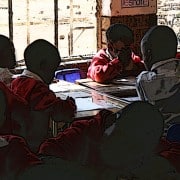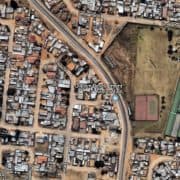|
Getting your Trinity Audio player ready...
|
By Kwazi Dlamini
When Corruption Watch undertakes an investigation, we do so because we deem the case to be in the public interest, and one that could have a significant impact. However, in cases when, for instance, access to important information is withheld, our chances of successfully resolving the matter are diminished.
In an e-mail sent to us in April 2018, the Gauteng Department of Education (GDE) denied any wrongdoing by any of the individuals implicated in financial irregularities at Cyrildene Primary School. The irregularities were uncovered by the school governing body (SGB) when they took up duties in 2015, and were pursued by the whistle-blower, an SGB member. After his findings on the mismanagement of funds were shunned by the school, the whistle-blower decided to report the matter to Corruption Watch for further investigation.
The report submitted to Corruption Watch alleged numerous irregularities within Cyrildene Primary School in Johannesburg – including irregular accounting processes, the school operating four bank accounts which is a clear violation of section 37(3) of the South African Schools Act, and unauthorised payments made to staff members, which violates section 38A of the Act. The report also revealed that an amount of R1.7-million was unaccounted for, and ledger accounts were missing from the school’s 2014 annual financial statements.
All the above irregularities were outlined in the internal audit report conducted by the Cyrildene SGB. The GDE then hired an external firm – Outsourced Risk and Compliance Assessment (ORCA) – to conduct a forensic investigation into the matter.
Investigation results differ – or do they?
In its e-mail to us, the GDE said the forensic report conducted by ORCA was attended to by relevant stakeholders including the whistle-blower, who was not satisfied with the outcome. In the midst of denying all the allegations in the internal audit report, however, the GDE did acknowledge that the school had four bank accounts and was advised by the department to cut these down to just one account.
According to the GDE’s e-mail, the clearing investigation conducted by ORCA on behalf of the department was not aligned to the view of the internal audit report but it was pursued after a formal complaint was lodged with the department by the same whistle-blower. The investigators took into consideration and engaged with the audit report during the process. Corruption Watch requested a copy of the ORCA forensic report from William Makgabo of the GDE, in terms of the Promotion of Access to Information Act (Paia). After 30 days had lapsed without hearing from the GDE, we deemed such lack of response a refusal in terms of Section 27 of Paia.
Hence we were unable to determine whether the ORCA report and the internal audit report had different findings.
The correlation between the two investigations was one of the questions we asked of the GDE:
- Why has the GDE continued to withhold the forensic report?
- What were the findings by ORCA in relation to the irregularities raised in the internal audit report?
- Were any individuals implicated of wrongdoing in the forensic report?
- If any individuals were implicated of wrongdoing, what remedial action has been recommended?
For the most part, these questions were not answered. The GDE, in its e-mail, claimed the reason for withholding the ORCA forensic report was because it had been already discussed by all the relevant stakeholders.
The department also revealed that the implicating report was later withdrawn in writing after the whistle-blower was requested to provide evidence supporting his allegations. “The whistle-blower was also extensively engaged and was requested to provide evidence supporting his allegations,” said the GDE in its e-mail response.
The report conducted by ORCA on behalf of the department also found that the allegations of missing R1.7-million were unfounded; in the wake of this report the whistle-blower still upheld his findings noted in the internal audit report and said that since the GDE failed to provide any document of evidence to support these ORCA findings, this means they are hiding something.
“The whistleblower did not accept the outcome of the investigation by the Department and he persisted with his allegations despite that he was unable to provide evidence of such. He appeared disgruntled and motivated by his private interests at the school,” replied the GDE, via e-mail.
The case is now at a stalemate, because we do not have the information we need in order to reach a conclusion. However, we decide to publish cases like these in the hopes that parties concerned will reconsider their reluctance to co-operate.







